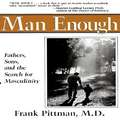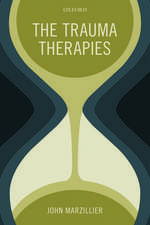Psychologist's Book of Self-Test: 25 Love, Sex, Intelligence, Career, and Personality Tests: Perigee
Autor Louis H. Janda, JANDAen Limba Engleză Paperback – 30 iun 1996 – vârsta de la 18 ani
How comfortable are you with success?
Do you possess above-average intelligence?
Who do you believe controls your fate?
How well do you really know yourself?
Psychologists have spent years trying to help people answer these questions. Now, you con benefit from this research -- and uncover your strengths and weaknesses -- with this collection of actual personality tests developed by psychologists for professional use.
Twenty-five tests cover every aspect of your personality: intelligence, ambition, self- esteem, platonic and romantic relationships, and sexuality. And at the end of each test, expert advice is included that will help you change your life for the better. The personality profile that emerges will give you valuable insight into yourself -- and point you in the right direction on your quest for self-improvement.
Do you possess above-average intelligence?
Who do you believe controls your fate?
How well do you really know yourself?
Psychologists have spent years trying to help people answer these questions. Now, you con benefit from this research -- and uncover your strengths and weaknesses -- with this collection of actual personality tests developed by psychologists for professional use.
Twenty-five tests cover every aspect of your personality: intelligence, ambition, self- esteem, platonic and romantic relationships, and sexuality. And at the end of each test, expert advice is included that will help you change your life for the better. The personality profile that emerges will give you valuable insight into yourself -- and point you in the right direction on your quest for self-improvement.
Preț: 124.78 lei
Preț vechi: 131.34 lei
-5% Nou
Puncte Express: 187
Preț estimativ în valută:
23.88€ • 24.84$ • 19.71£
23.88€ • 24.84$ • 19.71£
Carte disponibilă
Livrare economică 25 martie-08 aprilie
Preluare comenzi: 021 569.72.76
Specificații
ISBN-13: 9780399522116
ISBN-10: 0399522115
Pagini: 240
Dimensiuni: 131 x 204 x 16 mm
Greutate: 0.22 kg
Editura: Tarcherperigee
Seria Perigee
ISBN-10: 0399522115
Pagini: 240
Dimensiuni: 131 x 204 x 16 mm
Greutate: 0.22 kg
Editura: Tarcherperigee
Seria Perigee
Notă biografică
Louis H. Janda, Ph.D., a clinical psychologist and author of The Psychologist's Book of Self-Tests, has been a member of the psychology department at Old Dominion University in Norfolk, VA, since 1973. Also engaged in private practice, he has published numerous articles in professional literature, as well as several textbooks and trade books.
Extras
Sample Test
How Assertive Are You?
The Rathus Assertiveness Schedule
Directions: Indicate how uncharacteristic or descriptive each of the following statements is of you by using the code given below:
+3 very characteristic of me, extremely descriptive
+2 rather characteristic of me, quite descriptive
+1 somewhat characteristic of me, slightly descriptive
-1 somewhat uncharacteristic of me, slightly nondescriptive
-2 rather uncharacteristic of me, quite nondescriptive
-3 very uncharacteristic of me, extremely nondescriptive
1. Most people seem to be more aggressive and assertive than I am.
2. I have hesitated to make or accept dates because of shyness.
3. When the food served at a restaurant is not done to my satisfaction, I complain about it to the waiter or waitress.
4. I am careful to avoid hurting other people's feelings, even when I feel that I have been injured.
5. If a salesman has gone to considerable trouble to show me merchandise that is not quite suitable, I have a difficult time saying no.
6. When I am asked to do something, I insist upon knowing why.
7. There are times when I look for a good, vigorous argument.
8. I strive to get ahead as well as most people in my position.
9. To be honest, people often take advantage of me.
10. I enjoy starting conversations with new acquaintances and strangers.
11. I often don't know what to say to attractive persons of the opposite sex.
12. I hesitate to make phone calls to business establishments and institutions.
13. I would rather apply for a job or for admission to a college by writing letters than by going through with personal interviews.
14. I find it embarrassing to return merchandise.
15. If a close and respected relative were annoying me, I would smother my feelings rather than express my annoyance.
16. I have avoided asking questions for fear of sounding stupid.
17. During an argument I am sometimes afraid that I will get so upset that I will shake all over.
18. If a famed and respected lecturer makes a statement that I think is incorrect, I will have the audience hear my point of view as well.
19. I avoid arguing over prices with clerks and salesmen.
20. When I have done something important or worthwhile, I manage to let others know about it.
21. I am open and frank about my feelings.
22. If someone has been spreading false and bad stories about me, I see that person as soon as possible to have a talk about it.
23. I often have a hard time saying no.
24. I tend to bottle up my emotions rather than make a scene.
25. I complain about poor service in a restaurant or elsewhere.
26. When I am given a compliment, I sometimes just don't know what to say.
27. If a couple near me in a theater or at a lecture were conversing rather loudly, I would ask them to be quiet or to take their conversation elsewhere.
28. Anyone attempting to push ahead of me in a line is in for a good battle.
29. I am quick to express an opinion.
30. There are times when I just can't say anything.
source: Spencer A. Rathus. "A 30-item schedule for assessing assertive behavior." Behavior Therapy, 1973, 4, 398D406. Used by permission.
SCORING KEY FOR THE RATHUS
Assertiveness Schedule
The first step to score this scale is to change the sign for the items that are reverse scored. For the items below, if you used a negative number, change the sign from a minus to a plus. If you used a positive number for these items, change the sign from a plus to a minus.
1 2 4 5 9 11 12 13 14 15 16 17 19 23 24 26 30
After you have changed the signs for the items above, find your total score. If your math is a little rusty, you do this by adding together all the numbers with the same sign. You will end up with one positive and one negative number. Subtract the smaller number from the larger one and use the sign that was with the larger number.
How Do You Compare?
Score Percentile
-29 15
-15 30
0 50
+15 70
+29 85
About Assertiveness
Assertiveness training was one of the first techniques developed by behavior therapists back in the late 1950s and early 1960s. By the late 1960s and early 1970s, when a large number of new clinical psychologists who had been trained in behavioral methods were beginning their practices, assertiveness training groups became ubiquitous. While they are not the fad now that they were two decades ago, anyone who is interested would have little difficulty in finding such a group in any but the remotest of locales. Are there really so many people who need to increase their assertiveness? Perhaps, but to at least some extent, the proliferation of assertiveness training experiences reflects the values of many mental health professionals.
If you received a score that was lower than the 15th percentile, you probably could benefit from becoming more assertive. The difficulty you have in speaking your mind is probably causing you to feel lonely, isolated, and exploited. But, on the other hand, I'm not so sure it should be your goal to have as high a score as possible. Contrary to what many other mental health professionals may tell you, I believe a medium level of assertiveness is perfectly acceptable. Extremely assertive individuals tend to be hard-driving, ambitious people who can also be self-centered. They have a tendency to believe that their own feelings and desires are more important than those of anyone else. Dr. Rathus provided some support for this position in his original research study with the scale. He found that people who had high scores on his scale were perceived by their close friends as not being as "nice" as those who were lower in assertiveness.
To be fair, there is an important distinction between assertiveness and aggressiveness. Assertiveness is defined as the socially appropriate expression of feelings, so assertive behavior need not be aggressive. Let's use one of the items on the Rathus Assertiveness Schedule as an example. Item 14 asks for feelings about returning merchandise. An aggressive person might complain loudly about the merchandise and belligerently demand a full refund. An assertive person would state the reasons for the return, not only in a clear and forthright fashion, but also calmly and reasonably, until a refund or credit was forthcoming. Assertive people are intent on making their feelings known to others. Aggressive people want to place themselves in a "one-up" position. This would be one situation where it would be desirable to be assertive.
To make my case that assertiveness need not always be the ideal, consider item 15, "If a close and respected relative were annoying me, I would smother my feelings rather than express my annoyance." I have my share of relatives who can be annoying, but I almost always smother my feelings. First of all, I see them, at most, a few times a year, so it's not as if I have to do much suffering in silence. Second, my relatives are who they are, and my expression of annoyance is not going to change them. They are not about to take my words of wisdom to heart and change their annoying ways. And third, I appreciate that I may have my own annoying ways and they are polite enough to keep their thoughts to themselves. There are some situations where it just isn't worth it to openly express all feelings.
If the Rathus Assertiveness Schedule does help you identify some situations that you could handle more effectively, it is possible to change your ways. As is the case with social anxiety discussed in the previous section, lack of assertiveness does respond well to treatment. Indeed, people with high levels of social anxiety tend to lack assertiveness. (However, not every one who is socially confident is assertive.) The same five-step program outlined in the previous section can help you become more assertive.
Because assertiveness, more so than social anxiety, tends to be related to specific situations, you may want to devise a somewhat more detailed plan for change. The first step is to list the situations in which you would like to be more assertive. You can use the items on the Rathus scale as a guide. Item 23, for instance, "I often have a hard time saying no," is a common problem for people low in assertiveness. If this is a problem for you, you might find it helpful to make a list of the situations in which you have trouble saying no even when you would like to.
The second step is to order this list in terms of how difficult each situation is for you. It may not be all that difficult for you to say no to a telephone caller soliciting for a charity, while it may be extremely difficult for you to say no to a close friend who asks to borrow your car. For each situation think of, or better yet, write down an assertive response that you believe is appropriate for the situation. To the telephone caller you might say, "I'm sorry I can't help you. My policy is never to send money in response to phone solicitations." To your friend you might simply say, "I don't lend my car to other people." In thinking about assertive responses, keep in mind that you do not have to explain your feelings, nor do you have to apologize for them. It is always nice to be tactful, but don't forget that it is the other person who is putting you on the spot by making an unreasonable request.
The third step is practice. Begin with the easiest tasks on your list, and as you begin to feel more comfortable with those, move up the hierarchy. Remember to use the techniques discussed in the previous section. When you are asserting yourself, catch yourself when you have negative thoughts and make a conscious effort to substitute positive thoughts. Practice may not make perfect, but it can make a difference. And remember, your goal is not to become a self-centered, aggressive person; you simply want to enjoy your social relationships and to keep others from taking advantage of you.
Copyright ? 1996 by Dr. Louis Janda
How Assertive Are You?
The Rathus Assertiveness Schedule
Directions: Indicate how uncharacteristic or descriptive each of the following statements is of you by using the code given below:
+3 very characteristic of me, extremely descriptive
+2 rather characteristic of me, quite descriptive
+1 somewhat characteristic of me, slightly descriptive
-1 somewhat uncharacteristic of me, slightly nondescriptive
-2 rather uncharacteristic of me, quite nondescriptive
-3 very uncharacteristic of me, extremely nondescriptive
1. Most people seem to be more aggressive and assertive than I am.
2. I have hesitated to make or accept dates because of shyness.
3. When the food served at a restaurant is not done to my satisfaction, I complain about it to the waiter or waitress.
4. I am careful to avoid hurting other people's feelings, even when I feel that I have been injured.
5. If a salesman has gone to considerable trouble to show me merchandise that is not quite suitable, I have a difficult time saying no.
6. When I am asked to do something, I insist upon knowing why.
7. There are times when I look for a good, vigorous argument.
8. I strive to get ahead as well as most people in my position.
9. To be honest, people often take advantage of me.
10. I enjoy starting conversations with new acquaintances and strangers.
11. I often don't know what to say to attractive persons of the opposite sex.
12. I hesitate to make phone calls to business establishments and institutions.
13. I would rather apply for a job or for admission to a college by writing letters than by going through with personal interviews.
14. I find it embarrassing to return merchandise.
15. If a close and respected relative were annoying me, I would smother my feelings rather than express my annoyance.
16. I have avoided asking questions for fear of sounding stupid.
17. During an argument I am sometimes afraid that I will get so upset that I will shake all over.
18. If a famed and respected lecturer makes a statement that I think is incorrect, I will have the audience hear my point of view as well.
19. I avoid arguing over prices with clerks and salesmen.
20. When I have done something important or worthwhile, I manage to let others know about it.
21. I am open and frank about my feelings.
22. If someone has been spreading false and bad stories about me, I see that person as soon as possible to have a talk about it.
23. I often have a hard time saying no.
24. I tend to bottle up my emotions rather than make a scene.
25. I complain about poor service in a restaurant or elsewhere.
26. When I am given a compliment, I sometimes just don't know what to say.
27. If a couple near me in a theater or at a lecture were conversing rather loudly, I would ask them to be quiet or to take their conversation elsewhere.
28. Anyone attempting to push ahead of me in a line is in for a good battle.
29. I am quick to express an opinion.
30. There are times when I just can't say anything.
source: Spencer A. Rathus. "A 30-item schedule for assessing assertive behavior." Behavior Therapy, 1973, 4, 398D406. Used by permission.
SCORING KEY FOR THE RATHUS
Assertiveness Schedule
The first step to score this scale is to change the sign for the items that are reverse scored. For the items below, if you used a negative number, change the sign from a minus to a plus. If you used a positive number for these items, change the sign from a plus to a minus.
1 2 4 5 9 11 12 13 14 15 16 17 19 23 24 26 30
After you have changed the signs for the items above, find your total score. If your math is a little rusty, you do this by adding together all the numbers with the same sign. You will end up with one positive and one negative number. Subtract the smaller number from the larger one and use the sign that was with the larger number.
How Do You Compare?
Score Percentile
-29 15
-15 30
0 50
+15 70
+29 85
About Assertiveness
Assertiveness training was one of the first techniques developed by behavior therapists back in the late 1950s and early 1960s. By the late 1960s and early 1970s, when a large number of new clinical psychologists who had been trained in behavioral methods were beginning their practices, assertiveness training groups became ubiquitous. While they are not the fad now that they were two decades ago, anyone who is interested would have little difficulty in finding such a group in any but the remotest of locales. Are there really so many people who need to increase their assertiveness? Perhaps, but to at least some extent, the proliferation of assertiveness training experiences reflects the values of many mental health professionals.
If you received a score that was lower than the 15th percentile, you probably could benefit from becoming more assertive. The difficulty you have in speaking your mind is probably causing you to feel lonely, isolated, and exploited. But, on the other hand, I'm not so sure it should be your goal to have as high a score as possible. Contrary to what many other mental health professionals may tell you, I believe a medium level of assertiveness is perfectly acceptable. Extremely assertive individuals tend to be hard-driving, ambitious people who can also be self-centered. They have a tendency to believe that their own feelings and desires are more important than those of anyone else. Dr. Rathus provided some support for this position in his original research study with the scale. He found that people who had high scores on his scale were perceived by their close friends as not being as "nice" as those who were lower in assertiveness.
To be fair, there is an important distinction between assertiveness and aggressiveness. Assertiveness is defined as the socially appropriate expression of feelings, so assertive behavior need not be aggressive. Let's use one of the items on the Rathus Assertiveness Schedule as an example. Item 14 asks for feelings about returning merchandise. An aggressive person might complain loudly about the merchandise and belligerently demand a full refund. An assertive person would state the reasons for the return, not only in a clear and forthright fashion, but also calmly and reasonably, until a refund or credit was forthcoming. Assertive people are intent on making their feelings known to others. Aggressive people want to place themselves in a "one-up" position. This would be one situation where it would be desirable to be assertive.
To make my case that assertiveness need not always be the ideal, consider item 15, "If a close and respected relative were annoying me, I would smother my feelings rather than express my annoyance." I have my share of relatives who can be annoying, but I almost always smother my feelings. First of all, I see them, at most, a few times a year, so it's not as if I have to do much suffering in silence. Second, my relatives are who they are, and my expression of annoyance is not going to change them. They are not about to take my words of wisdom to heart and change their annoying ways. And third, I appreciate that I may have my own annoying ways and they are polite enough to keep their thoughts to themselves. There are some situations where it just isn't worth it to openly express all feelings.
If the Rathus Assertiveness Schedule does help you identify some situations that you could handle more effectively, it is possible to change your ways. As is the case with social anxiety discussed in the previous section, lack of assertiveness does respond well to treatment. Indeed, people with high levels of social anxiety tend to lack assertiveness. (However, not every one who is socially confident is assertive.) The same five-step program outlined in the previous section can help you become more assertive.
Because assertiveness, more so than social anxiety, tends to be related to specific situations, you may want to devise a somewhat more detailed plan for change. The first step is to list the situations in which you would like to be more assertive. You can use the items on the Rathus scale as a guide. Item 23, for instance, "I often have a hard time saying no," is a common problem for people low in assertiveness. If this is a problem for you, you might find it helpful to make a list of the situations in which you have trouble saying no even when you would like to.
The second step is to order this list in terms of how difficult each situation is for you. It may not be all that difficult for you to say no to a telephone caller soliciting for a charity, while it may be extremely difficult for you to say no to a close friend who asks to borrow your car. For each situation think of, or better yet, write down an assertive response that you believe is appropriate for the situation. To the telephone caller you might say, "I'm sorry I can't help you. My policy is never to send money in response to phone solicitations." To your friend you might simply say, "I don't lend my car to other people." In thinking about assertive responses, keep in mind that you do not have to explain your feelings, nor do you have to apologize for them. It is always nice to be tactful, but don't forget that it is the other person who is putting you on the spot by making an unreasonable request.
The third step is practice. Begin with the easiest tasks on your list, and as you begin to feel more comfortable with those, move up the hierarchy. Remember to use the techniques discussed in the previous section. When you are asserting yourself, catch yourself when you have negative thoughts and make a conscious effort to substitute positive thoughts. Practice may not make perfect, but it can make a difference. And remember, your goal is not to become a self-centered, aggressive person; you simply want to enjoy your social relationships and to keep others from taking advantage of you.
Copyright ? 1996 by Dr. Louis Janda
Textul de pe ultima copertă
How comfortable are you with success? Do you possess above-average intelligence? Who do you believe controls you fate? Are you capable of having an intimate relationship? How well do you really know yourself? Psychologists have spent years trying to help people answer these questions. Now, you can benefit from this research - and uncover your strengths and weaknesses - with this collection of actual personality tests developed by psychologists for professional use. Twenty-five tests cover every aspect of your personality: intelligence, ambition, self-esteem, platonic and romantic relationships, and sexuality. And at the end of each test, expert advice is included that will help you change your life for the better. The personality profile that emerges will give you valuable insight into yourself - and point you in the right direction on your quest for self-improvement.
Descriere
Now readers can uncover their strengths and weaknesses with this collection of 25 actual personality tests developed by psychologists for professional use. The tests cover every aspect of personality--intelligence, self-esteem, ambition, platonic and romantic relationships--and, at the end of each, expert advice to help readers change their lives for the better is included.




















